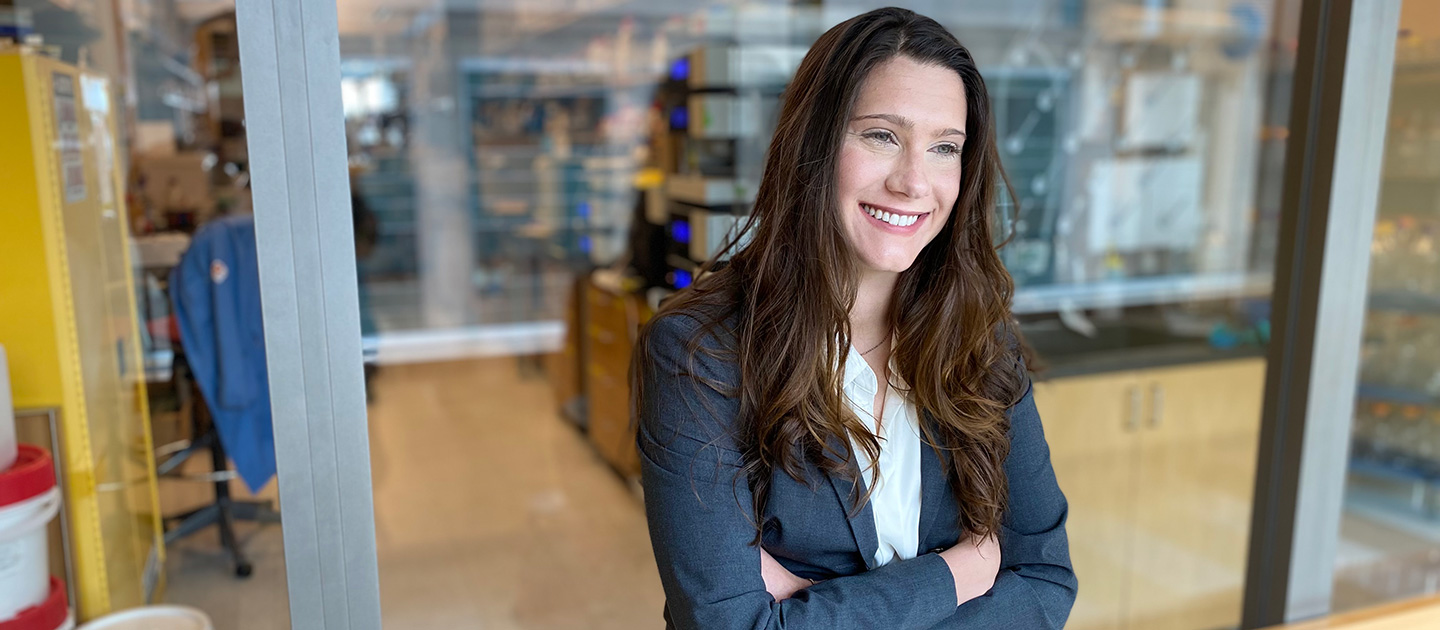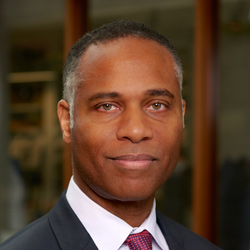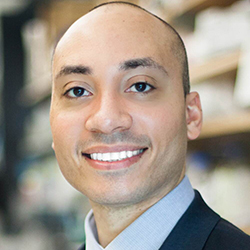Researching the Disease I Live with Every Day
Living with Type 1 diabetes put Jacqueline Burke on a path to success

At age 9, I was diagnosed with type I diabetes.
Shots and needle pokes once reserved for only the dreaded annual pediatrician’s visit became a terror that took place every few hours. While it would take time to vanquish my blues and regain the colorful enthusiasm needed to overcome this disease, I took solace by pretending that I was a doctor when drawing up syringes and practicing my injection skills on my ever-willing patients — usually various citrus fruits.
With time, this became second nature, as I could test my blood glucose and inject insulin under my elementary school desk without the other kids or teacher even noticing. I also learned to count carbs and calculate insulin dosing using ratios. As the accuracy of my math became vital for survival, I advanced to the top of my calculus classes. As I became older and began to understand the biological deficits of my own body, science also became a passion. I attended Johns Hopkins University as an undergraduate, studying biomedical engineering. As a freshman, I studied hydrogel strategies to heal diabetic foot ulcers.
While I loved the lab environment, I detested confronting the potential long-term complications of my disease daily. I wanted to be at the forefront of enabling patients to have better glycemic control. I wanted to work on the cure, not the complications.
It is extremely challenging to research a disease that I live with every day, especially on days when the mice have better blood glucose levels than me. I have had to find a good balance between pushing myself to drive the work forward and taking care of my personal health. If my blood glucose is not good, then doing experiments will be a lot harder.
That became even harder during the pandemic when many people living with diabetes — both type 1 and 2 —were dying of COVID-19. I had to make the difficult decision to return to the lab. I was extremely fortunate to have the support of my mentors and labs in doing so. Still, there were obstacles. For example, it was difficult to find safe spaces on campus to remove my mask and eat my scheduled meals. I found myself stocking fruit snacks in my N95 mask before I placed it on my face, so that I could easily eat them without removing my mask if my blood glucose dropped.
I use the motivation and drive that I’ve learned from my disease — and my mentors — to make me a more effective researcher, poking holes in hypotheses to create innovative solutions. There certainly aren’t many people like me in the field, but I think we contribute to it greatly.
Jacqueline Burke
I was drawn to Northwestern by the opportunity Professor Guillermo Ameer offered me
within his lab to work on islet transplantation — something that focused on a treatment for T1D rather than its complications. Uniquely, he truly gave me the scientific and financial freedom to pursue any experiment I desired. This is truly rare for a PhD student, as most are tied to a project and constrained by grant funding. Given the strong immunology component of islet transplantation work, I ended up deciding to be co-advised by Professor Evan Scott, which allowed me to pursue a project where I studied immunomodulation in mice.

When I was diagnosed with T1D, the doctors told me scientists would cure me in seven years. It has been 18. I take a great deal of caution when it comes to being optimistic about any therapy — including the one I developed. The entire T1D community has been let down many times. However, we are very rigorous with our studies, ensuring multiple experiments are performed with different sets of animals and batches of the drug, blinding analyses, etc.
As with any therapeutic, there is a huge scientific jump from mouse models to human patients. We are hoping to start preclinical trials in nonhuman primates within the year. I believe the successful result of these upcoming studies will be necessary for me to have the optimism that this could be taken to the clinic.
I have had some outstanding women mentors during my time at Northwestern University who rose through the ranks within their fields — even as they were the only women, and often the youngest in the room — and were great role models to me.

I finished my tenure at Northwestern in January and moved on to become a research assistant professor in the department of pharmacology and regenerative medicine at the University of Illinois at Chicago and a senior scientist at DuPage Medical Technology, a startup focused on nanomedicine. I continue to work closely with Scott to develop the rapamycin-loaded polymersome technology as it continues its lofty journey to the clinic.
It feels like a long time since I’ve given a shot to citrus, and in many ways, I feel just as far from a cure to T1D. But I think that’s part of learning to live with a disease I research. It’s challenging to hold onto hope for so long and watch as long-term implications of diabetes affect test subjects and friends and, in some ways, it’s become my superpower. I use the motivation and drive that I’ve learned from my disease — and my mentors — to make me a more effective researcher, poking holes in hypotheses to create innovative solutions. There certainly aren’t many people like me in the field, but I think we contribute to it greatly.
Jacqueline Burke received her PhD in biomedical engineering from Northwestern.